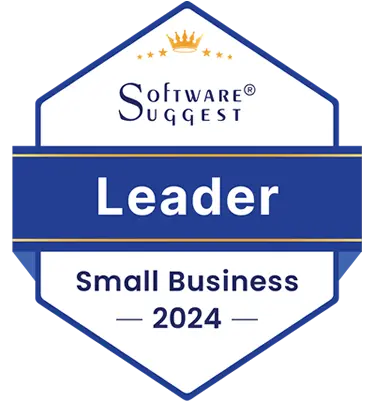In the dynamic world of online retail, non-customized e-commerce software has emerged as a convenient and accessible solution for businesses looking to establish an online presence without the intricacies of extensive customization. These out-of-the-box platforms offer a quick and straightforward entry into the digital marketplace, catering to a diverse range of entrepreneurs, startups, and small businesses.
In the ever-evolving landscape of digital commerce, establishing a profitable online store has become a sought-after endeavor for entrepreneurs and businesses alike. The global shift towards online shopping has opened up vast opportunities, but success in the e-commerce realm requires careful planning, strategic execution, and a commitment to delivering value to customers. In this comprehensive guide, we'll delve into the key steps and strategies to help you create a profitable online store.
1. Define Your Niche:
Before diving into the world of e-commerce, it's crucial to define your niche. Identify your target audience and understand their needs and preferences. Choose a niche that aligns with your passion and expertise, as this will not only make the process more enjoyable but also set you apart in a competitive market.
2. Conduct Market Research:
Thorough market research is the foundation of a successful online store. Analyze your competitors, identify market trends, and assess consumer behavior. Tools like Google Trends, SEMrush, and industry reports can provide valuable insights, helping you tailor your offerings to meet customer demands.
3. Select the Right E-Commerce Platform:
Choosing the right e-commerce platform is a pivotal decision. Options like Shopify, WooCommerce, and BigCommerce offer user-friendly interfaces, customizable designs, and integrated payment solutions. Consider your budget, technical expertise, and scalability needs when making this decision.
4. Design a User-Friendly Website:
Your website is the storefront of your online business. Invest in a clean, intuitive design that reflects your brand identity. Ensure seamless navigation, quick loading times, and mobile responsiveness. A positive user experience will encourage visitors to explore your products and make purchases.
5. Optimize Product Pages:
Craft compelling product descriptions, accompanied by high-quality images. Provide essential details, such as product specifications, pricing, and availability. Implement a user-friendly checkout process with multiple payment options to cater to diverse customer preferences.
6. Implement SEO Strategies:
Search Engine Optimization (SEO) is essential for driving organic traffic to your online store. Conduct keyword research and optimize product descriptions, meta titles, and URLs. Regularly update your blog with relevant content to enhance your site's visibility in search engine results.
7. Create a Content Marketing Plan:
Content marketing is a powerful tool for building brand awareness and engaging your target audience. Develop a content calendar that includes blog posts, social media updates, and newsletters. Share valuable content that resonates with your audience and establishes your brand as an authority in your niche.
8. Utilize Social Media Marketing:
Social media platforms provide a dynamic space to connect with potential customers. Develop a strong social media presence on platforms like Instagram, Facebook, and Twitter. Share visually appealing content, run targeted ads, and engage with your audience to foster a sense of community around your brand.
9. Offer Incentives and Discounts:
Entice customers with special offers, discounts, and loyalty programs. Limited-time promotions and exclusive deals can drive sales and encourage repeat business. Consider implementing a referral program to leverage the power of word-of-mouth marketing.
10. Prioritize Customer Service:
Exceptional customer service is a cornerstone of a successful online store. Promptly respond to customer inquiries, address concerns, and provide a seamless return process. Positive customer experiences contribute to brand loyalty and positive reviews, further enhancing your online reputation.
11. Monitor Analytics and Iterate:
Regularly analyze website analytics and sales data to gain insights into customer behavior. Identify high-performing products, assess marketing strategies, and make data-driven decisions to optimize your online store continuously.
12. Invest in Digital Marketing:
Strategically invest in digital marketing channels such as Google Ads, Facebook Ads, and influencer collaborations. Target your advertisements to reach your specific audience, and monitor the performance of each campaign to refine your approach over time.
13. Build Trust with Secure Transactions:
Security is paramount in e-commerce. Invest in SSL certificates to secure online transactions and reassure customers that their sensitive information is protected. Display trust badges prominently to build confidence in your store.
14. Stay Updated with Industry Trends:
The e-commerce landscape is dynamic, with trends and technologies constantly evolving. Stay informed about industry developments, emerging technologies, and changing consumer preferences. Adapt your strategies to stay ahead of the competition and meet the evolving needs of your audience.
15. Scale Your Business:
As your online store gains momentum, explore opportunities for expansion. Consider introducing new products, entering new markets, or diversifying your offerings. Continuously innovate to keep your brand relevant and competitive in the ever-growing e-commerce space.
The web impacts every part of our lives. We use it for blending, redirection, working, and build assessment. We moreover use it to shop.
There's as of now a time of adults who have recently known a reality where the web exists, and as they, and the ages that follow, spend more money, build online business platforms will continue to create. By and by, 43% of clients use the web and casual networks to investigate things preceding purchasing, and by 2024, web business pay will be esteemed at $476 billion in the U.S.
Retailers can't bear remaining separated to show up at customers. Electronic business areas empower associations to show up at new business areas and gain adaptability by selling in the event that their actual stores need to close. Expecting that you're just starting a business, an electronic business website page can give you a general market and memorability before you even open a real store.
Starting a dedicated web business website empowers you to control each piece of your customer experience, from checking to conveyance and customer support. You can choose to manufacture it yourself or go with a fashioner, but in any case, being acquainted with the cycle can help you with making informed choices, so you get a site that is redesigned for selling your things.
Instructions to Build an Ecommerce Website Step-by-Step
Select your ideal internet business stage.
Buy an area name.
Track down an engineer
Pick your internet business subject.
Redo your web based business format.
Add your items.
Set up installment choices.
Figure out your delivery settings.
Your All-in-One E-Commerce Powerhouse! Are you ready to take your online business to unprecedented heights? Meet Myonlinestore – the ultimate e-commerce solution designed to empower entrepreneurs, small businesses, and enterprises with a seamless and feature-rich online selling experience. Buckle up as we unveil a game-changing tool that will revolutionize the way you do e-commerce.
Simple, it’s a user friendly and advanced online store builder which really doesn’t need any intro. Wix used to be the online ecommerce website builder.
Shopify's inconceivably open and is jam-pressed loaded with helpful elements. They give essentially all that you might actually have to run and deal with your internet business.
Reasonable, easy to use and element pressed Shopify is the most well known web-based store manufacturer for new companies and independent ventures who need to get fully operational rapidly.
BigCommerce is a multichannel-centered internet based store manufacturer that consistently integrates with Amazon, eBay, Google Shopping, Facebook, Pinterest, Instagram and different deals channels. BigCommerce is very easy to use and offers a lot of all set plans, so you can without much of a stretch dispatch a store inside a couple of hours.
I hope the above mentioned info will help you out with your decision making on the.
Building a successful e-commerce business and to know more on the best platform to create online store is a journey that requires dedication, strategic planning, and ongoing adaptation to industry trends Build ecommerce platform. By understanding your niche, choosing the right platform, designing a user-friendly website, and implementing effective marketing strategies, you can create a thriving online shop that captivates customers and stands the test of digital evolution. Embrace the opportunities, stay innovative, and watch your e-commerce business flourish in the ever-expanding online marketplace. In conclusion, the establishment of a successful online business portal requires a strategic blend of user-centric design, compelling content, and cutting-edge technology. By prioritizing user experience, security, and innovation, your portal can become a powerful tool for driving growth and establishing a formidable presence in the digital marketplace.




Our clients' success stories speak volumes. Their testimonials highlight our dedication to delivering quality, reliability, and affordability. With a proven track record of satisfied customers across multiple industries, you can trust that our software services are not only best-in-class but also designed to fit your budget without compromising on quality. Let us help you achieve your business goals affordably and efficiently!